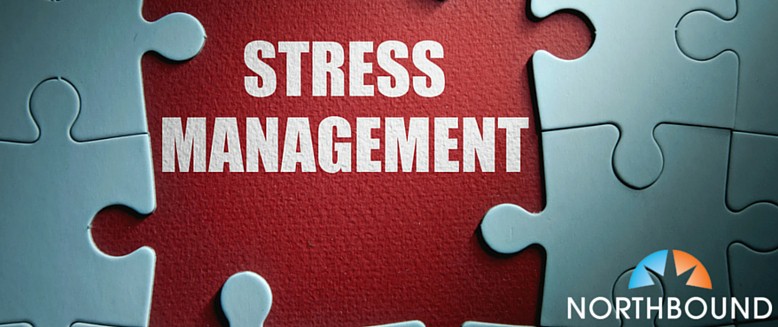Stress Management Plan: Steps to Improve Your Anxiety
Stress is a normal part of everyone’s life and there is no way to cut it out completely. It’s the body’s natural reaction to the many situations in life, and it enables us to handle both physical and emotional threats to our well-being. The body’s natural processes will shift to accommodate the stressful situation, and for real threats this a good thing! If however, you are dealing with excessive, unnecessary, or chronic stress, the stress response can cause harm.
Having a stable and balanced emotional and physical state of being is the key to longevity, happiness, and health. Learning to decrease your stress levels, cope with stressful situations, and manage your mental health will give you the tools to maintain long term health, sobriety, and a good quality of life.
Signs of Excessive Stress
Unfortunately, if we don’t properly handle our stress it can result in severe physical and emotional discomfort. A lot of people underestimate the power stress can hold over us, and the various symptoms it can cause. However, when we realize stress is our “fight or flight” response, meaning the body thinks it’s in danger, it makes sense that our system would go into overdrive.
Stress will look different to everyone, but the underlying situation is that every system in the body essentially shuts down to let the body “fight” whatever is causing danger. The brain sends signals to the rest of the body to alert it when focus needs to be put on a threat and taken away from everyday functions.
Since under extreme stress the body’s natural functions are weakened, shut down, or altered, some symptoms stress can cause include:
- Irritability/mood swings
- Fatigue
- Headaches
- Difficulty concentrating
- Rapid, disorganized thoughts
- Difficulty sleeping
- Digestive problems
- Changes in appetite
- Feeling helpless
- A perceived loss of control
- Low self-esteem
- Loss of sexual desire
- Nervousness
- Frequent infections or illnesses
- Chronic pain
- Brain fog
- Numbness and tingling
- Hormone imbalance
These are just some of the side effects of stress, since essentially any function could be weakened if the brain feels like an external “threat” is more important than a certain function. F you experience any of these regularly, and your doctor says you are perfectly healthy, stress is likely to blame.
Essential Steps for a Stress Management Plan
Everyone has different stressors in their life, and therefore will need to make different changes depending on their situation. Some people experience long term chronic stress that may require medication, therapy, or some form of long term treatment to find improvements.
For the majority of us, everyday stress is manageable if we have the right tools and knowledge. Health concerns begin to arise when we let the stress of long term or specific situations build up until it overwhelms our entire lives. Infact, stress can take a toll on our bodies and minds that we experience its effects as being health problems separate from our situations.
Stay active
Physical movement is a proven method to reduce stress. It releases endorphins, adrenaline, and stabilizes cortisol levels to help bring your body back to a calm state. Getting your heart rate up and having a short period every day to exert your energy can help you release some of that pent up energy.
High intensity movement may work for others, but some people will do better with calmer versions of exercise like yoga or tai chi. Even a brisk walk during the day is a great way to control your stress levels. As you move your body, focus on your breath and try and come back to the present moment instead of focusing on what’s bothering you.
Mindfulness
Do you ever sit down and think about why you are so stressed out? When you look at things from a logical standpoint instead of an emotional one, often you will find your problems are quite as bad as your had originally perceived them to be. The mind is a powerful but tricky tool. You can choose to have active or passive control over your thoughts. Passive would be to allow worries and fears to sit in your head, while active would be making a direct effort to shift your negative thoughts into a more positive direction. Working with a life coach, a therapist, or someone experienced in stress management will be able to help guide you through learning mindfulness.
Know Your Triggers
This could be considered a sort of extension to mindfulness. We all learn to recognize what things cause us stress; maybe too much work, or certain relationships, or overscheduling. Whatever it may be, if you know its stresses you out- make an effort to make less of it in your life. There are so many things in our life that are out of control, we owe it to ourselves to at least take care of the things we can control.
Break Things Down
It’s is all about perspective! It can be overwhelming for people to have a large situation that needs to be handled. We might start thinking things like “I’ll never get this done in time”, or “there’s no way I can figure this out”. Instead of looking at yourself at the starting line staring straight to the finish line, imagine you just need to make it 1/10th of the way there. Set smaller goals so you can keep making mini accomplishments until the final goal is eventually met. It can be overwhelming to look at a situation as a whole, but calming to just look at what needs to be done right now at this very moment.
Practice self-care
Self care is a term that encompasses a whole lot of practices. It means treating yourself in the best possible way and truly taking care of your mental and physical health. Self care could be:
- Eating a balanced diet
- making time to see friends and family
- saying no when something doesn’t serve you
- Practicing positive self talk
- Practicing gratitude
- Spending time alone
- Ending Toxic Relationships
Self care is learning to be your own best friend, and it might take time, but it’s the best way to get to know yourself, what you like, and what you need to live a stress free and healthy life.
Unwind
You have to schedule time to unwind and realign with yourself and what’s going on in your life. Coming back to yourself at the end of the day to reflect on what habits have benefited you, what hasn’t, and just taking your mind off of hectic things is so important to remain calm and stress free. If you don’t take time of the day to step away from things that are causing you anxiety or overthinking, these issues are going to get worse.
There are a couple of ways you can unwind, some of them are:
- Journal
- Listen to music
- Take a bath
- Read a book
- Talk to a close friend
- Do something creative (paint, build, etc,)
- Cook healthy meals
- Watch a show
- Have fun – Life isn’t that serious!
Whatever it is you feel like you’re missing in your life, allow yourself to have it. Maybe it’s quiet time, maybe it’s the opposite and you need some adventure. Whatever you need to come back to yourself after a stressful day, make sure you schedule that into your life. Remember, you are the most important thing in your life.
The Significance of Low Stress Levels
According to the Centers for Disease Control and Prevention, up to 90% of all illness and disease is stress-related. That means that almost all of our physical problems can be avoided if we learn how to take care of ourselves. Each one of us are meant to live a happy and healthy life, but in today’s busy world sometimes we aren’t taught the tools to allow this to happen.
The bottom line is stress makes everything worse. It makes work harder to get through, relationships harder to maintain, sobriety harder to keep, and life harder to handle. The good news is- we have the choice to say no to stress and learn how to be our own best caretaker.
Developing Your Stress Management Plan at Northbound Recovery
Northbound prides itself in engaging clients in high quality therapies such as cognitive-behavioral therapy, dialectical behavioral therapy, psychodrama and motivational interviewing. These methods of mental coaching offer our clients the chance to dive into deep into their minds and better understand what situations and factors surrounding their addiction so they can learn how to work through them positively.
We believe that with our care, clients will be able to find and maintain sobriety with our mental training and professional services. Clients also participate in a variety of holistic and recreational activities to promote healing and stress relief. Change takes time, but by engaging in healthier, more constructive thought patterns, you can reduce the impact of stress on your life and recovery.
Treatment At Northbound Recovery
Northbound Recovery provides comprehensive services designed to address all aspects of the disease of addiction and mental health. From initial assessment and detox to therapies and support groups, and thorough aftercare, we are here to support our clients from start to finish. Pain is inevitable, but suffering is optional. Learn more about our mission and call us anytime at (866)-311-0003 to start your journey!











